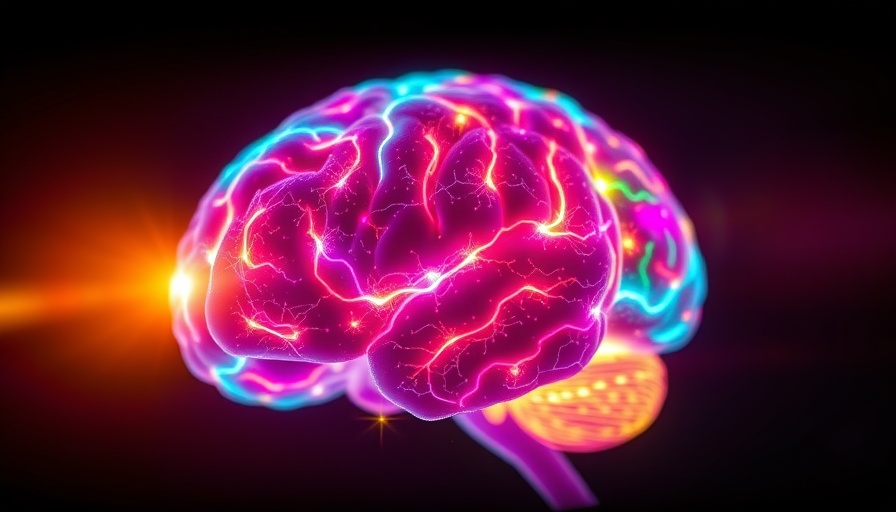
The Disruption of Brain Aging: A Breakthrough Discovery
Aging has long been viewed as an inevitable decline in cognitive abilities, particularly within the hippocampus, the brain's center for learning and memory. Recent research conducted by scientists at the University of California, San Francisco (UCSF), however, presents a glimmer of hope. They have identified a protein named FTL1 that could potentially reverse the aging process in the brain, offering a pathway not just to slow cognitive decline but to restore youthful mental acuity.
Understanding FTL1's Role in Brain Health
FTL1 was highlighted as the primary suspect in cognitive decline during the research team's analysis of age-related changes in hippocampal proteins of mice. They observed that older mice exhibited elevated FTL1 levels, which corresponded with reduced connectivity among brain cells and deteriorating cognitive functions. Interestingly, when researchers artificially elevated FTL1 in younger mice, their brains displayed behavioral patterns akin to those of older mice, indicating its significant role in determining brain health.
The Experimental Turnaround: Reversal of Impairments
In a remarkable twist, the UCSF team discovered that reducing FTL1 levels in older mice remarkably restored cognitive functions and enhanced neural connections. This was described by Dr. Saul Villeda, the lead researcher, as a "reversal of impairments," highlighting that the results surpassed simple delay tactics typically associated with age-related therapies.
Future Insights: Reimagining Age and Memory
This discovery opens intriguing possibilities for future therapies targeting FTL1. As Dr. Villeda optimistically notes, we are at a pivotal moment in aging research, where biologists can explore interventions that significantly alleviate the harsh impacts of aging on cognition. The potential for treatments that could enhance memory and cognitive functions offers promising prospects not only for the aging population but for individuals seeking to maintain their mental agility as they navigate high-pressure professional environments.
The Implications for Tech and Business Professionals
For CEOs, marketing managers, and other professionals aged 35-55, the revelations surrounding FTL1 could have profound implications. As work demands grow, maintaining sharp cognitive capabilities becomes crucial in a competitive marketplace. Understanding and leveraging advancements in brain health and anti-aging research may provide significant personal advantages and enhance workplace productivity.
Parallel Innovations in Health Tech
The intersection of neuroscience research and health tech innovation presents exciting opportunities. Technologies like brain-computer interfaces and artificial intelligence-driven cognitive health assessments are gaining traction. These advancements, when combined with discoveries like FTL1, could revolutionize how we age, work, and live. Investing in products that integrate these innovations can lead to a healthier workforce and improved overall mental wellbeing.
Looking Ahead: Navigating Future Health Decisions
Lifestyle choices will also play a crucial role in how we respond to these scientific advancements. Individuals may consider integrating brain-boosting practices—such as targeted cognitive exercises, nutrition focused on brain health, and stress management techniques—into their lives.
Conclusion: Your Mindset Matters
Overall, the identification of FTL1 is a pivotal leap towards not just understanding aging, but actively reversing its effects on cognitive function. As the research progresses, professionals stand to benefit immensely from understanding these developments. By staying informed and proactive about their cognitive health, they can unlock their full potential and lead more productive, fulfilling lives.
As we await further developments, professionals should consider how these insights can inform their health decisions and strategies for maintaining cognitive vitality in an ever-evolving workplace.
 Add Row
Add Row  Add
Add 




Write A Comment